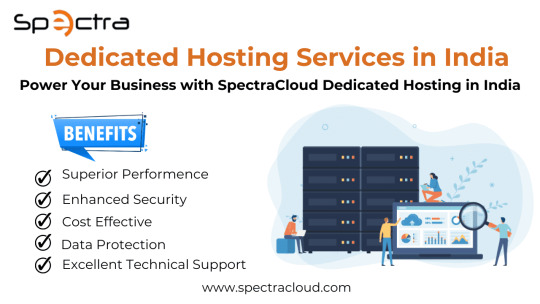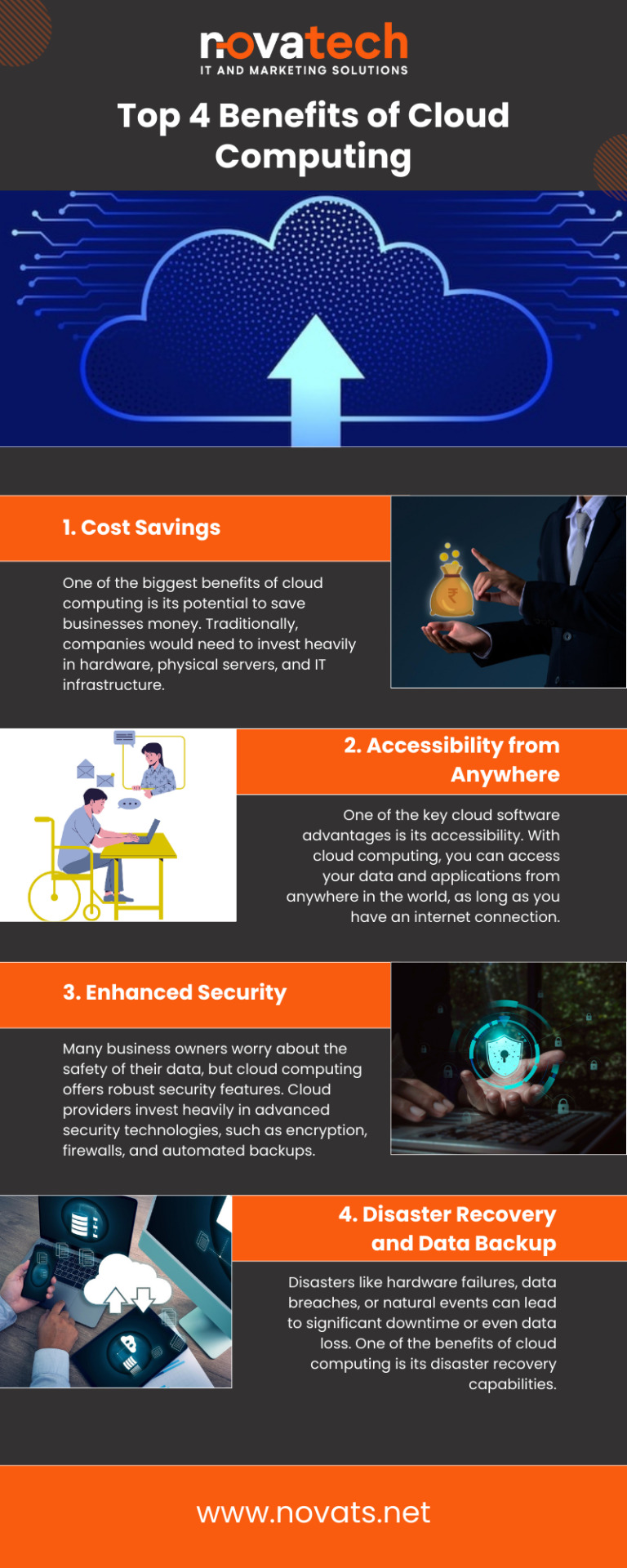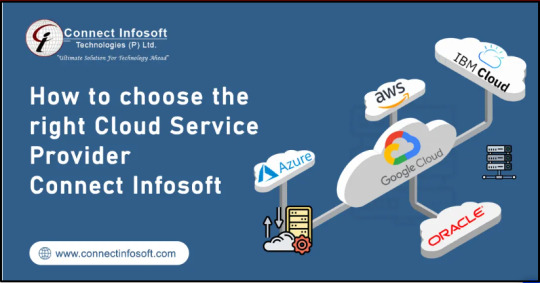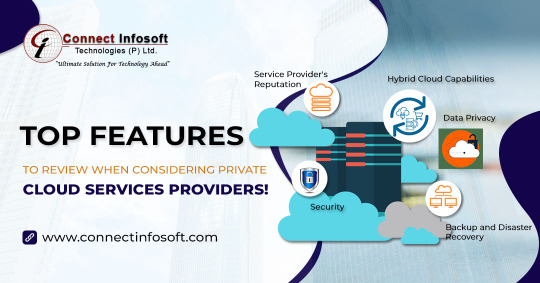#Cloud Computing Service
Explore tagged Tumblr posts
Text
Why SpectraCloud is the Best Choice for Dedicated Hosting Services in India
Are you searching for a dependable host that can move your numerous high-traffic websites and provides high-performance Dedicated Servers with a 100% uptime guarantee? Are you trying to run your resource-demanding applications on a dedicated server that offers limitless bandwidth? Server Basket is the ideal hosting partner to use in that case. We offer low- to high-end dedicated servers with a range of operating system options, both managed and unmanaged. Our dedicated servers are all prepared with web application firewalls, IDS, and IPS for complete security.

Superior Efficiency with SpectraCloud
Regarding Dedicated Hosting, performance is an important consideration. With dedicated hosting, you have exclusive access to every resource on a single server, unlike with shared hosting, where several websites use the same server resources. As a result, performance is noticeably improved, load times are sped up, and enormous traffic volumes may be handled without sacrificing dependability or speed.
SpectraCloud offers cutting-edge hardware, such as the newest processors, fast SSD storage, and lots of RAM, to elevate performance to a new level. This guarantees that your application or website functions properly even during periods of high traffic. Furthermore, SpectraCloud scalable dedicated hosting solutions enable companies to expand their resources in line with their expanding requirements. Because of its adaptability, SpectraCloud is the finest Dedicated Hosting Company for companies of all kinds.
Robust Security Measures
Security is a top priority for any online business. With growing cyber threats, a secure hosting environment is essential to protect sensitive data and maintain customer trust. SpectraCloud understands the importance of security and offers a range of advanced security features in its Dedicated Hosting Services.
Each dedicated server is equipped with a robust firewall, DDoS protection, and regular security updates to protect against potential threats. In addition, SpectraCloud provides an SSL certificate, which is essential to encrypt data and ensure secure communication between your website and its visitors. These complete security measures ensure that SpectraCloud offers a secure hosting environment, making it the perfect choice for Dedicated Hosting for businesses where data protection is a top priority.
Excellent Customer Support
One of the key factors that set SpectraCloud apart from other hosting providers is its excellent customer support. Managing a dedicated server can be complicated, especially for companies without in-house IT expertise. SpectraCloud recognizes this challenge and offers 24/7 customer support to address any issues or questions that arise.
Whether you need help setting up your server, troubleshooting, or tuning performance, SpectraCloud team of experienced experts is always available to provide timely and effective solutions. This level of support ensures that your website or application stays online and functioning optimally, giving you peace of mind so you can focus on growing your business.
Cost-Effective Solutions with Cheap Dedicated Server Hosting
While dedicated hosting is known for its superior performance and security, it often comes with a higher price tag compared to other hosting options. However, SpectraCloud is committed to offering affordable solutions without compromising on quality. As a result, SpectraCloud provides some of the Cheap Dedicated Server Hosting plans in India, making it accessible to businesses with varying budgets.
SpectraCloud pricing model is transparent and includes no hidden or unexpected costs. This combination of affordability and high-quality service makes SpectraCloud the dedicated hosting provider of choice for businesses looking to maximize their return on investment. Additionally, SpectraCloud offers flexible billing options, allowing businesses to choose monthly, quarterly, or yearly plans depending on their financial preferences.
Customization and Control One of the key benefits of dedicated hosting is the level of customization and control it offers. Unlike Shared Hosting and VPS Hosting, which are limited in resources and configuration, dedicated hosting gives businesses full control over their server environment. SpectraCloud goes a step further, offering a wide range of customization options to meet the unique needs of each business.
From choosing the operating system to configuring software and applications, SpectraCloud Dedicated Hosting Services allow businesses to tailor their server environment to their specific requirements. This level of control is particularly beneficial for businesses with complex applications or those that require specific software configurations. With SpectraCloud, you have the freedom to optimize your server for performance, security, and functionality, making it the Best Dedicated Hosting choice for businesses with unique needs.
Comprehensive Backup Solutions – Reliability and Availability Guaranteed
Downtime can be costly for any online business, resulting in lost sales, damaged reputation, and dissatisfied customers. Therefore, reliability is a key factor when choosing a Dedicated Hosting Provider. SpectraCloud understands the importance of uptime and is committed to providing a reliable hosting experience.
SpectraCloud Dedicated Hosting Services offer a 99.9% uptime guarantee, keeping your website or application online and accessible at all times. This reliability is backed by a robust infrastructure that includes multiple data centers, redundant power sources, and advanced monitoring systems. By minimizing downtime and ensuring consistent performance, SpectraCloud proves to be the Dedicated Hosting Provider of choice for businesses that require high availability.
Data loss can have a ruinous impact on any business, leading to significant setbacks and potential legal issues. SpectraCloud recognizes the importance of data protection and offers comprehensive backup solutions as part of its Dedicated Hosting Services. These backups are performed on a regular basis and can be customized as per your business needs: daily, weekly, monthly, etc.
In the event of data loss or server failure, SpectraCloud Backup Solutions ensure that your data can be restored quickly, minimizing downtime and reducing the impact on your business. This commitment to data protection further cements SpectraCloud position as the Best Dedicated Hosting Provider in India.
Green Hosting Initiative
SpectraCloud not only offers top-notch hosting services, but is also committed to sustainability. As part of its green hosting initiative, SpectraCloud uses energy-efficient hardware and processes to reduce its carbon footprint. By choosing SpectraCloud as your Dedicated Hosting Provider, you are not only investing in a high-performance Hosting Solution but also contributing to environmental sustainability.
Conclusion
In a competitive market like India, finding the Best Dedicated Hosting Provider can be difficult. However, for businesses looking for a reliable, secure, and cost-effective hosting solution, SpectraCloud should be your first choice. With unmatched performance, robust security measures, excellent customer support, and Affordable Pricing, SpectraCloud gives you everything you need to succeed online. Whether you're a small business looking for Cheap Dedicated Server Hosting or a large enterprise needing a customized hosting solution, SpectraCloud has the expertise and resources to meet your needs. When you choose SpectraCloud, you're not just choosing a hosting provider; you're working with a company committed to helping your business succeed in the digital world.
#spectracloud#dedicatedhosting#dedicated server#hosting service provider#hosting service#backup solution#cloud computing service#cheap hosting#affordable hosting#cheap dedicated server hosting
2 notes
·
View notes
Text

Dive into this infographic to know more about the top 4 benefits of cloud computing.
If you’re interested in leveraging the benefit of cloud computing, Novatech IT and Marketing Solution, a leading IT company in El Paso, offers customized cloud solutions that help businesses thrive in the digital age. Whether you need cloud services or help with SEO service in El Paso, Novatech can help your business reach new heights.
0 notes
Text
Cloud Migration: What is Cloud Migration? Strategy, Process, and Tools
The modern business landscape is increasingly defined by technology. One of the most transformative shifts in this realm is the migration to the cloud. But what exactly is cloud migration? Why should businesses care about it? And how can they ensure it’s done right? Let’s dive in and unpack the essentials of cloud migration, from its definition to strategies, processes, and tools.
What is Cloud Migration?
At its core, cloud migration refers to the process of moving an organization's digital assets—applications, data, IT resources—from on-premises servers or one cloud platform to another. Think of it as moving your belongings to a new house, but instead of furniture, you’re relocating data and services. This shift enables businesses to leverage the flexibility, scalability, and cost-effectiveness that cloud platforms offer.
But why are so many organizations embracing cloud migration? The reasons range from improving operational efficiency to enhancing security, and even enabling rapid innovation. However, like any move, it requires careful planning to ensure everything arrives in the right place, intact and functional.
The Importance of a Cloud Strategy
What is a Cloud Strategy?
A cloud strategy acts as a blueprint for the migration process. It outlines an organization’s objectives, the type of cloud services to adopt, and how to align these decisions with business goals. Without a strategy, you risk overspending, underutilizing resources, or, worse, disrupting operations.
Why Businesses Need Cloud Strategy Consulting
Here’s where cloud strategy consulting comes into play. Experts in this field assess your current IT landscape, understand your business goals, and design a tailor-made roadmap for migration. They help you weigh options like public, private, or hybrid cloud and recommend the best fit for your needs.
For instance, while public clouds like AWS or Azure are cost-effective and scalable, private clouds offer enhanced security and control. A hybrid approach can provide a balance, blending the benefits of both.
Key Considerations
When building your strategy, consider factors like:
Cost: Evaluate both initial migration expenses and long-term operational costs.
Compliance: Ensure that your data handling complies with industry standards and regulations.
Integration: Assess how your existing systems will integrate with the cloud.
The Cloud Migration Process
1. Assessment and Planning
This is your "laying the foundation" phase. Identify what needs to be migrated, assess risks, and establish key performance indicators (KPIs) to measure success. For example, how much downtime can your organization tolerate? What are your data security needs?
2. Choosing the Right Cloud Transformation Services
Cloud migration isn’t one-size-fits-all. That’s why selecting the right cloud transformation services is critical. This includes assessing whether a lift-and-shift approach (replicating existing applications in the cloud) or a more comprehensive refactoring (redesigning applications to suit cloud environments) is more appropriate.
3. Migration Execution
The actual migration happens here. Depending on your chosen approach, this could involve rehosting, replatforming, or even rebuilding applications.
4. Testing and Optimization
Think of this as your "home inspection" after the move. Run tests to ensure applications perform well in the cloud. Optimize configurations for cost, performance, and scalability.
Cloud Migration Tools to Know
The right tools can make or break your cloud migration experience. Here are some popular ones to consider:
1. AWS Migration Hub
Ideal for organizations using Amazon Web Services, this tool provides a centralized platform to track progress and streamline migrations.
2. Azure Migrate
Microsoft Azure’s tool offers comprehensive support for migrating servers, databases, and applications.
3. Google Cloud Migration Tools
Google provides tools like Migrate for Compute Engine, making it easy to transition to Google Cloud Platform.
The Challenges of Cloud Migration
While cloud migration offers immense benefits, it’s not without challenges. Organizations must navigate issues like:
Data Security: Moving sensitive data can expose vulnerabilities.
Downtime: Improper planning can lead to business disruptions.
Skill Gaps: Not all IT teams have the expertise needed for a seamless migration.
Cost Management: Hidden costs can emerge, making budget adherence tricky.
That’s why it’s crucial to partner with experienced cloud computing service providers who can anticipate these challenges and provide tailored solutions. For more insights, check out LedgSure’s cloud transformation services.
Conclusion
Cloud migration is a powerful step toward digital transformation, but it’s not a journey to embark on lightly. By understanding the strategies, processes, and tools involved, businesses can make informed decisions that drive success. Whether you’re just starting or looking to optimize your existing cloud infrastructure, remember: planning and the right expertise make all the difference.
0 notes
Text
Top 5 Cloud Computing Companies In India: A Comprehensive Guide
Cloud computing, a rapidly growing trend in the business world, is revolutionizing operations by offering solutions for software applications and data storage computing power. The increasing demand for such services in India is a clear indicator of the industry's rapid growth. As the IT sector expands, more and more cloud computing service providers are entering the market, with many now leading the industry in India.

As cloud consulting services have been rapidly gaining popularity in recent years and are helping businesses extensively, cloud computing is growing very fast, and companies are providing services to IT infrastructure on a large scale. Many service providers in India are at the top of cloud computing, such as AWS (Amazon Web Services), Digital Ocean, Google Cloud, Netgleam, and Microsoft Azure.
Overall, these 5 Top Cloud Computing Service Providers in India provide secure and reliable infrastructure and data analytics capabilities across various industries.
Netgleam Consulting:
Netgleam is India's leading Cloud Consulting Company, which prepares businesses to thrive in the digital age. We provide businesses with reliable services related to cloud computing and help solve challenges. We offer cloud services such as networking, storage, software, and databases through the Internet. Businesses & organizations can avail of some of our services for their cloud project, which includes:
Cloud Support and Maintenance
2. Cloud Migration
3. Cloud Computing Architecture
4. Cloud Integration
Netgleam can help you transition to the future of corporate management and businesses and provide the necessary resources. Organizations can adopt our cloud services to save on costs and run operations as outsourced without in-house resources.
AWS (Amazon Web Services):
AWS is one of the cloud consulting companies in India known for providing various services on a large scale. It provides business services like machine learning, computing, analytics, artificial intelligence, and databases. Many platforms are looking at AWS as a cloud service provider due to its scalability and are using its services. Some providers are taking advantage of AWS services to handle their data. AWS's cloud consulting services offer flexible solutions for small to large enterprises.
Digital Ocean:
Digital Ocean has gained popularity quickly in India for providing services to startups and developers. It is an ideal and reliable choice for innovating companies as it focuses more on extensive documentation and community support. Developer-friendly features, simplicity, and affordability are why this provider is leading. Digital Ocean lets businesses manage cloud infrastructure with its robust APIs and user-friendly interface.
Google Cloud:
The Google Cloud service provider offers services like Kubernetes Engine, Compute Engine, and App Engine to Indian organizations to modernize applications and IT infrastructure. This platform provides some essential tools for businesses and organizations to build and scale applications in the cloud. GC's pricing model is transparent and best among sub-providers in terms of prices. With Google Cloud, you can avail of security features like transit, identity access management, and data encryption.
Microsoft Azure:
Microsoft Azure has emerged as a trusted provider in cloud computing with its vast experience. It designs its services to meet the cloud-related needs of organizations and businesses. It provides an environment for sensitive data compliant with compliance regulations and data privacy. The Microsoft platform offers a range of solutions and products catering to the Indian market. Azure integrates with applications such as SAP and Salesforce, making it easier for businesses to adopt cloud technologies.
Choosing the Best Cloud Computing Service Providers in India for Your Business When it comes to choosing the best cloud computing service provider for your organization, several factors should be considered. Understanding your company's budget and which cloud technology is suitable within that budget is crucial. Assessing the technical support provided by the provider and ensuring their reliability are also key considerations. This guidance can help you make an informed decision that best suits your business needs.
#it services#it solutions#Cloud Computing Service#Cloud Service Providers#Cloud Consulting Provider in Jaipur India
0 notes
Text
How To Choose The Right Cloud Service Provider | Connect Infosoft

In today's rapidly evolving digital landscape, leveraging cloud services has become essential for businesses of all sizes. Cloud computing offers numerous benefits, including scalability, cost-efficiency, flexibility, and enhanced data security. However, with the multitude of cloud service providers available, it can be challenging to choose the right one that aligns with your specific business requirements.
In this blog, we will explore essential factors to consider when selecting a cloud service provider and highlight why Connect Infosoft stands out as a top choice in the industry.
1. Define Your Requirements:
Before embarking on your search for a cloud service provider, it is crucial to clearly define your business requirements. Consider factors such as workload size, scalability needs, data security and compliance requirements, budget constraints, and desired service level agreements (SLAs). Having a comprehensive understanding of your specific needs will guide you in choosing a provider that can meet your unique demands.
2. Evaluate Security Measures:
Data security is of paramount importance when selecting a cloud service provider. Look for providers that employ robust security measures, such as encryption, firewalls, intrusion detection systems, and regular security audits. Additionally, ensure that the provider adheres to industry standards and compliance regulations relevant to your business, such as GDPR or HIPAA. Connect Infosoft places a strong emphasis on data security, employing state-of-the-art security protocols and maintaining compliance with industry regulations.
3. Consider Scalability and Flexibility:
Businesses today need cloud infrastructure that can scale seamlessly with their growth. Evaluate the scalability options offered by cloud service providers, such as the ability to quickly allocate additional resources or adjust capacity based on demand. Additionally, consider the flexibility provided by the provider in terms of choosing different services, configurations, and deployment models. Connect Infosoft offers highly scalable cloud solutions, allowing businesses to adapt and expand as needed.
4. Assess Reliability and Uptime:
Downtime can have severe implications for businesses, leading to financial losses and damaged reputations. Look for cloud service providers that guarantee high availability and offer robust disaster recovery mechanisms. Check the provider's track record for uptime and their ability to handle sudden surges in traffic. Connect Infosoft boasts an impressive uptime record and provides reliable infrastructure to ensure uninterrupted access to your applications and data.
5. Analyze Performance and Speed:
Performance and speed are critical factors that can impact user experience and productivity. Evaluate the provider's network infrastructure, data centers, and content delivery capabilities to ensure optimal performance for your applications and services. Connect Infosoft's global network of data centers and high-speed connectivity ensures fast and efficient data transfer, resulting in enhanced performance for your business operations.
6. Review Pricing and Cost Structure:
Budget considerations play a significant role in choosing a cloud service provider. Assess the pricing models offered by different providers, such as pay-as-you-go, reserved instances, or tiered plans, and determine which aligns best with your budget and usage patterns. Connect Infosoft offers flexible pricing options, allowing businesses to optimize costs while enjoying the benefits of cloud services.
7. Evaluate Support and Customer Service:
Reliable support and excellent customer service are crucial when dealing with cloud service providers. Look for providers that offer round-the-clock customer support, prompt issue resolution, and a dedicated account management team. Connect Infosoft prides itself on providing exceptional customer service, with a team of experienced professionals ready to assist you at any time.
Conclusion:
Choosing the right cloud service provider is a critical decision that can significantly impact your business's success. By defining your requirements, evaluating security measures, considering scalability and flexibility, assessing reliability and uptime, analyzing performance and speed, reviewing pricing and cost structures, and evaluating support and customer service, you can make an informed decision. Connect Infosoft emerges as an excellent choice, offering a comprehensive suite of cloud services backed by top-notch security, scalability, reliability, and exceptional customer support. Take the leap into the cloud with Connect Infosoft and unlock the full potential of your business.
#Looking for Cloud Computing Development#Looking For Cloud Computing Dev Team in India#Cloud Computing Service#DevOps Development company India#Hire Cloud Computing Developers#Connect Infosoft
1 note
·
View note
Text
Hire Cloud Developers: Web, Mobile & API Experts | Connect Infosoft
Hire Cloud Developers offers expert services in web, mobile, and API development, specializing in cloud technologies. Our team builds scalable, secure, and high-performance applications using AWS, Azure, and Google Cloud. Partner with us for innovative cloud solutions.

#Cloud Computing Development Services#Cloud Computing Development#Cloud Computing Service#Hire Cloud Computing Developer#Cloud application development#Cloud migration services#Cloud-native development#Cloud infrastructure management#Cloud DevOps services#Cloud security services#Cloud cost optimization
0 notes
Text
The Impact of Cloud Computing on IT Infrastructure Support

cloud computing has revolutionized IT infrastructure support, offering unparalleled flexibility, scalability, and efficiency. By embracing cloud-based solutions, organizations can overcome the limitations of traditional IT infrastructure models and unlock new opportunities for innovation and growth. However, the successful adoption of cloud computing requires careful consideration of security, integration, and skillset challenges. By following best practices and leveraging the transformative power of cloud computing, organizations can future-proof their IT infrastructure and drive sustainable business success in the digital age.
#it infrastructure support#it infrastructure management#it management service#managed it service#cloud computing service#cloud data backup and service
0 notes
Text

Describing the significant use of cloud computing - cuneiform
People frequently use the terms IaaS, PaaS, FaaS, and SaaS interchangeably when discussing cloud computing service because all of these technologies operate behind the cloud.
0 notes
Text
#microsoft#israel hamas war#refugees#palestinian refugees#gaza#occupied palestine#microsoft ai and cloud computing services#israel#technology
4 notes
·
View notes
Text

What Are 4 Uses Of Cloud Computing? Dive into this Infographic to know What Are 4 Uses Of Cloud Computing, it enables seamless scalability, enhances data security, facilitates remote collaboration, and optimizes resource efficiency across diverse industries.
1 note
·
View note
Text
Empower Your Digital Presence with Cutting-Edge Frameworks
In today’s fast-evolving digital landscape, staying ahead requires more than just a functional website or application—it demands innovation and efficiency. At Atcuality, we specialize in Website and Application Framework Upgrade solutions tailored to your business goals. Whether you're looking to optimize performance, enhance user experience, or integrate the latest technologies, our team ensures seamless upgrades that align with industry standards. Transitioning to advanced frameworks not only improves loading speeds and scalability but also strengthens your cybersecurity measures. With Atcuality, you gain access to bespoke services that future-proof your digital assets. Let us elevate your online platforms to a new realm of excellence.
#ai applications#artificial intelligence#ai services#website development#website developer near me#website developers#website developer in india#web development#web design#application development#app development#app developers#digital marketing#seo services#seo#emailmarketing#search engine marketing#search engine optimization#digital consulting#virtual reality#vr games#vr development#augmented reality#augmented and virtual reality market#cash collection application#task management#blockchain#metaverse#cloud computing#information technology
8 notes
·
View notes
Text

Explore the evolving diversification of telephone communication in hospitality. Let’s take a closer look at how modern telephony solutions can help you communicate better in a remote working world. Learn More...
#cloud technology#unified communications#hotel pbx#hotel hospitality#ip telephony#phonesuite voiceware#hotel phone system#phonesuite pbx#hotel phone installation#voiceware by phonesuite#VoIP Protocol#VoIP#voip phones#voip phone#voip technology#voip minutes provider#voip phone system#cloud computing#cloud services#voip solutions#telecommunications#Call Booking#Hotel Technology#Hotel industry#Hospitality technology#Communications#Telephony#cloud telephony#telephonysolutions#phonesuite
9 notes
·
View notes
Text
Trusted outsource software development teams - SSTech System

Outsource software development is the practice of relinquishing software-related duties to outside singularities or organizations. Outsourcing is used by firms to acquire software services and products from outside firms that do not have direct employees or employees under contract to the business entity that is outsourcing.
Infect, the outsourcing market worldwide is projected to grow by 8.28% (2025-2029) resulting in a market volume of US$812.70bn in 2029. This model is highly versatile and suits businesses of all sizes.
Start-ups often use outsourcing to develop MVPs quickly, while established companies might seek custom software development services or AI outsourcing services to address complex challenges. Outsourcing can include working with offshore development teams, global software development partners, or local experts like Australian software development experts for specific projects.
The benefits of outsourcing software development
Outsourcing has become a cornerstone for modern businesses due to its numerous advantages. Here’s a closer look at the key benefits:
1. Cost efficiency
Perhaps the biggest incentive for sourcing solutions from outsourcing service providers is the cost cutting factor. For instance, offshore software development in India provides expertise services at comparatively lower cost than that of in-house developed services in Western countries. This efficiency enable the enactments of cost savings in some other strategic sectors of the organization.
2. Access to global talent
Outsourcing can help to discover the wealth of new talents as well as the skills of professionals from other countries. No matter Whether it’s AI and machine learning integration, web application development in Australia, or outsourced healthcare software development, businesses can find experts in virtually any domain.
3. Scalability and flexibility
Outsourcing offers flexibility that is unparalleled in many organizations today. This is because; firms are able to expand and contract particular teams depending on the specific demand in projects. For example, outsourced IT solutions help business organizations prepare for different conditions while not having to employ permanent workers.
4. Faster time-to-market
With reliable software development teams in Australia or offshore development teams in India, businesses can speed up their project timelines. This helps innovations to make it through to the market early enough, which is useful for companies.
5. Focus on core activities
By delegating tasks like software maintenance and support or cloud software development in Australia to outsourcing partners, businesses can focus on their core competencies and strategic goals.
6. Reduced risk
In-house staff and trained outsourcing partners come with best practices, methods and procedures which when implemented reduce the chances of project hitch. Working with the top-rated IT outsourcing companies in Australia gives you confidence that your project is in safe hands.
Choosing the right outsourced software development partner

In the period from 2023 to 2027, the revenue of software outsourcing is forecasted to thrive at a CAGR of 7.54%. So, outsourcing partner selection is one of the most vital components since it determines the success of a given venture. Here are essential factors to consider:
1. Technical expertise
Check the partner’s competency and his knowledge of the field. For instance, SSTech System Outsourcing offers comprehensive solutions, from AI development services in India to mobile app development outsourcing in Australia.
2. Proven track record
Look for partners with a strong portfolio and positive client testimonials. A proven track record in delivering custom software development services or managing outsourcing software development contracts is a good indicator of reliability.
3. Effective communication
Effective and open communication is extremely important if the project is to be successful. Work with people who give frequent reports and employ efficient media to overcome the differences in time areas.
4. Cultural compatibility
There has to be a cultural match or at least appreciation for each other’s customs for there to be harmony in the working relationship. As such, staffed with proficient Australia software development experts or offshore development teams, whose experience is to work on global markets can coordinate and blend well with your work culture.
5. Security and compliance
You have to make sure that your partner complies with the standards and the policies that are in the industry. This is especially substantial for all information-sensitive projects such as outsourced healthcare software development or cloud software development in Australia.
6. Scalable infrastructure
Choose a partner capable of scaling their resources and infrastructure to meet your project’s evolving needs. This is crucial for long-term collaborations, especially with global software development partners.
AI-powered tools for outsourced development teams
According to a report from the US Bureau of Labor Statistics, software development ranks among the most sought-after professions. Hence, AI is at the forefront of reshaping the outsourcing industry. Therefore, the implementation of artificial intelligence will add value to business processes, make workflow easier, and boost the results of projects. Here are some examples:
1. Automated code reviews
Tools like DeepCode and SonarQube assist outsourced teams in detecting whether errors reside in the code line or not, and whether code needs to be enriched or not. This is particularly accurate concerning AI outsourcing and in-house development industries.
2. Predictive analytics
Automated analytics tools can predict such things as the time it will take to complete the project, how much money it will cost, and what risks are possible in a software development outsourcing scenario.
3. Smart project management
Tools and platforms such as Jira and Monday.com, when empowered with AI, allow the coordination of tasks and the tracking of progress and resource allocation.
4. AI collaboration tools
Communication and collaboration with internal members and offshore software development Australia partners get facilitated through applications that include, Slack, Microsoft Teams, and zoom with integrated AI functions.
5. Natural Language Processing (NLP)
AI-powered chatbots and virtual assistants simplify communication and issue resolution, making them valuable for managing outsourced IT solutions.
Best practices for managing outsourced development teams
Outsourced teams should be mandated and coordinated following a number of recommendations to ensure the efficiency of the entirety of the outsourcing process.
Here are the best practices to ensure your project’s success:
1. Set clear objectives
Make it clear to your project team, stakeholders, and other relevant parties what the parameters of the project are, what it is that you expect out of it, and what you expect to get from it in return. This fostaines consistency between your team and the outsourcing partner to increase efficiency in service delivery.
2. Choose the right tools
Use project tracking and collaboration software approaches to track and evaluate progress and meet regular informality and collaboration targets.
3. Foster a collaborative environment
It is worthy of note that constant communication is key to ensuring that your outsourcing team is on the same page with you. Fresh produce and feedback mechanisms need to be provided in order for there to be trust as is needed in project management.
4. Draft comprehensive contracts
There should be a comprehensive outsourcing software development contract. It should address issues to do with confidentiality, ownership of ideas and concepts, plea structure and mode of handling disputes.
5. Focus on long-term relationships
Building a long-term partnership with trusted providers like SSTech System Solutions can lead to consistent quality and better project outcomes.
Conclusion
To keep up with technology, outsourcing software development offers businesses solutions and support that can enable the creation of complex solutions out of mere ideas. Outsourcing has the benefits of minute overhead cost and is also a rich source of globally talented employees, and it offers the advantage of early time to market. Whether you’re looking for mobile app development outsourcing in Australia or seeking offshore software development in India or opting for AI outsourcing services, the potential is huge.
Such companies can only benefit from opting for reliable outsourcing companies such as SSTech System Outsourcing and embracing industry best practices to promote the success of business project implementations while enhancing market relevance. As technologies like AI and cloud computing are still changing the face of the outsourcing market, software development outsourcing will still be important for any company that wants to survive in a digital world.
Take the first step today—partner with global software development partners and unlock the full potential of your ideas with the power of outsourcing.
#SSTech System Outsourcing#SSTech System Solutions#AI outsourcing services#cloud computing#offshore software development#Outsource software development#AI outsourcing#web application development in Australia#custom software development services#mobile app development#outsourced IT solutions#cloud software development#IT Support & Maintenance Services
4 notes
·
View notes
Text
Future Of Cloud Computing in India
Cloud computing has revolutionized the IT landscape in India, offering scalable and flexible computing resources over the internet. This transformative technology has enabled businesses to streamline operations, reduce costs, and drive innovation. The future of cloud computing in India looks promising as businesses across sectors increasingly embrace cloud technologies for operational efficiency and scalability.

Major Cloud Service Providers in India
India's cloud computing market is dominated by global and domestic providers. Here are some major players shaping the cloud landscape in the country:
Amazon Web Services (AWS): With a comprehensive suite of cloud services, AWS has gained significant traction among businesses of all sizes, thanks to its robust infrastructure and global presence.
Microsoft Azure: Powered by Microsoft's experience in enterprise software and services, Azure offers a wide range of cloud solutions, including infrastructure, platform, and software-as-a-service.
Google Cloud Platform (GCP): GCP provides cutting-edge tools and services focused on AI and ML, making it attractive for businesses looking to build scalable and intelligent applications.
IBM Cloud: With expertise in hybrid cloud solutions, IBM Cloud enables organizations to seamlessly integrate their existing infrastructure with the cloud. It also offers industry-specific solutions for sectors like finance, healthcare, and manufacturing.
Oracle Cloud: Oracle Cloud provides tailored cloud services, including infrastructure, platform, and applications, with a focus on enterprise-grade security and performance.
Future Trends in Cloud Computing
The future of cloud computing in India will see continued growth and innovation. Key trends that will shape the industry include:
Hybrid Cloud Adoption: Businesses will increasingly maintain a hybrid environment, leveraging public clouds for scalability while retaining control over sensitive data on private infrastructure.
Edge Computing: With the rise of IoT devices, edge computing will become crucial for processing data closer to its source, reducing latency and improving performance, particularly in industries like manufacturing, logistics, and healthcare.
Artificial Intelligence and Machine Learning: Cloud platforms equipped with AI and ML capabilities will empower businesses to leverage advanced analytics and automation, enhancing operational efficiency and driving innovation across industries.
Industry-Specific Cloud Solutions: Cloud service providers will develop specialized offerings tailored to the unique requirements of sectors such as healthcare, finance, e-commerce, and education, further fueling the growth of cloud computing in India.
Conclusion
The future of cloud computing in India is promising, with sustained growth expected. Digital transformation initiatives, increased internet penetration, and government support will drive the expansion of cloud services across industries. Cloud computing will continue to play a pivotal role in shaping India's digital economy and driving innovation in the years to come.
#cloud computing in india#future of cloud computing#cloud computing service#cloud service model#cloud computing
1 note
·
View note
Text
Top Features To Review When Considering Private Cloud Services Providers - Connect Infosoft
Because enterprises only pay for the resources they consume, using cloud services allows companies to move faster on initiatives and test out concepts without protracted procurement and large upfront expenses. This concept of corporate agility is frequently emphasised as a key benefit by cloud enthusiasts. The ability to spin up new services without the cost and effort involved with traditional IT procurement should make it easier to get new applications up and running more quickly.

When considering private cloud service providers, it's essential to evaluate various features to ensure they align with your organization's requirements and goals.
Here Are Some Top Features To Review:
Scalability and Performance: Ensure the provider's infrastructure can handle your organization's current and future demands. Look for features like auto-scaling, load balancing and high-performance computing capabilities.
Security: Security is paramount for private clouds. Evaluate the provider's security measures, including data encryption, access controls, firewalls, intrusion detection and regular security audits.
Compliance: If your organization operates in a regulated industry, check if the provider complies with relevant standards such as GDPR, HIPAA, PCI DSS, etc.
Data Privacy: Understand how the provider handles and protects your data. Check their data retention policies, backup procedures and data sovereignty options.
Customization: A private cloud should be tailored to your organization's needs. Assess if the provider allows customization of resources, networking and configurations.
Hybrid Cloud Capabilities: If you plan to adopt a hybrid cloud strategy, ensure the provider supports seamless integration between your private cloud and public cloud services.
Network Connectivity: A reliable and low-latency network is vital for private cloud services. Evaluate the provider's network infrastructure and available options for dedicated connections.
Backup and Disaster Recovery: Check the provider's backup and disaster recovery strategies. They should have robust mechanisms to ensure data integrity and availability during unforeseen events.
Service Provider's Reputation: Research the provider's reputation in the industry. Look for reviews, case studies and customer testimonials to gauge their track record.
Comprehensive Documentation: Good documentation is a sign of a well-organized provider. Check if they offer clear and comprehensive guides for setup, management and troubleshooting.
Legal and Contractual Terms: Review the terms of service, data ownership, exit strategies and any potential legal implications of working with the provider.
What Is Private Cloud Services?
Private cloud services refer to computing resources, services and infrastructure that are dedicated to a single organization and are hosted either on-premises or by a third-party provider. Unlike public clouds, which are shared among multiple users and organizations, private clouds offer exclusive use to a single entity, ensuring greater control, security and customization.
Benefits Of Private Cloud Services:
Private cloud services offer several benefits that make them an attractive choice for organizations. Here are some of the key benefits:
Enhanced Security: One of the primary advantages of private cloud services is the increased level of security they provide. With a private cloud, your data and applications are stored on dedicated infrastructure that is not shared with other organizations. This isolation helps reduce the risk of unauthorized access and potential security breaches.
Increased Control and Customization: Private clouds offer greater control and customization options compared to public cloud services. You have the ability to tailor the infrastructure, network configurations, security policies, and deployment models to meet your specific requirements. This level of control allows for better alignment with your organization's security, compliance, and performance needs.
Hybrid Cloud and Legacy System Integration: Private clouds facilitate hybrid cloud deployments, allowing you to integrate and extend your existing on-premises infrastructure with cloud resources. This integration enables seamless migration, workload portability and hybrid deployments, which can be beneficial for organizations with legacy systems or specific data requirements.
Cost Efficiency and ROI: While private cloud services may require higher upfront capital investment compared to public clouds, they can provide cost efficiency and a better return on investment (ROI) in the long run. Private clouds can help optimize resource utilization, reduce unnecessary costs and avoid the risk of unexpected charges associated with public cloud services.
Business Agility and Innovation: Private clouds enable organizations to rapidly deploy and scale applications and services, leading to increased business agility. The dedicated infrastructure and control over the environment allow for faster innovation, experimentation and the adoption of emerging technologies that can drive business growth and competitive advantage.
Challenges Of Private Clouds Services:
While private cloud services offer various benefits, they also come with certain challenges that organizations should be aware of. Here are some of the common challenges associated with private cloud services:
Higher Initial Costs: Setting up a private cloud infrastructure can involve higher upfront costs for hardware, software and personnel.
Maintenance and Management: Private clouds require ongoing maintenance, updates, and management, which can demand skilled IT personnel.
Limited Scalability: Private clouds may not provide the same level of scalability as public clouds, which can limit their suitability for certain rapidly changing workloads.
Potential Underutilization: Without careful planning and resource allocation, there's a risk of resources being underutilized, leading to inefficiencies.
Key Characteristics Of Private Cloud Services Include:
Dedicated Resources: Private cloud services provide dedicated computing resources, including virtual machines, storage and networking components, solely for the use of the organization that owns the private cloud.
Isolation: The infrastructure of a private cloud is isolated from external users and organizations, ensuring that data and applications are kept separate and secure.
Control: Organizations have complete control over the private cloud environment, allowing them to manage and monitor resources, implement updates and adjust configurations as needed.
Predictable Performance: Private clouds provide consistent and predictable performance since resources are not shared with other users. This makes them suitable for applications with stringent performance requirements.
Hybrid Integration: Private clouds can be integrated with public cloud resources in a hybrid cloud architecture, enabling organizations to leverage the scalability of public clouds while keeping sensitive data and critical workloads within their private environment.
Private Cloud Services Can Be Hosted And Managed In Different Ways:
On-Premises Private Cloud: Organizations build and manage their private cloud infrastructure within their own data centers. This provides the highest level of control but requires significant upfront investment and ongoing maintenance.
Hosted Private Cloud: Organizations can choose to have a third-party provider manage the private cloud infrastructure off-site. This reduces the burden of infrastructure management while still offering customization and security benefits.
Managed Private Cloud: Similar to hosted private clouds, managed private clouds are maintained by a third-party provider, but the provider takes care of ongoing management, updates and maintenance tasks.
Conclusion:
In conclusion, private cloud services offer a dedicated and secure computing environment exclusively for a single organization's use. These services provide a range of benefits, including enhanced security, customization, control and predictable performance. Organizations can choose between on-premises private clouds, hosted private clouds, or managed private clouds to best meet their needs.
Private clouds are ideal for industries with strict compliance regulations, organizations needing data sovereignty control, and those with applications requiring consistent performance. While private clouds offer greater control, they come with higher initial costs, maintenance responsibilities and potentially limited scalability compared to public clouds.
Tags: Top features of cloud services providers, Connect Infosoft, Looking for Cloud Computing Development and Dev Team in India, Cloud Computing Service, DevOps Development Company India, Looking For Web Developers in India, Looking For Web Designers in India
#Looking for Cloud Computing Development#cloud computing#Cloud Computing Service#DevOps Development Company India#Looking For Web Developers in India#Looking For Web Designers in India#connect infosoft
1 note
·
View note
Text
Secure and Scalable Cloud Server Management at Atcuality
For businesses seeking to enhance scalability and maintain top-tier security, Atcuality provides unparalleled cloud server management services. Our solutions cover all aspects of cloud server maintenance, including load balancing, patch management, data backups, and disaster recovery planning. Our experienced professionals work with cutting-edge tools to ensure that your servers are secure, efficient, and scalable to meet changing business needs. Whether you operate in e-commerce, finance, or technology, we tailor our services to align with your operational goals. With Atcuality as your trusted partner, you can focus on driving growth while we handle the technical complexities of cloud management.
#seo marketing#seo services#artificial intelligence#azure cloud services#seo agency#digital marketing#seo company#iot applications#ai powered application#amazon web services#ai applications#virtual reality#augmented reality agency#augmented human c4 621#augmented and virtual reality market#augmented intelligence#augmented reality#cloud security services#cloud computing#cloud services#cloud service provider#cloud server hosting#software#devops#information technology#cash collection application#task management#blockchain#web developing company#web development
2 notes
·
View notes